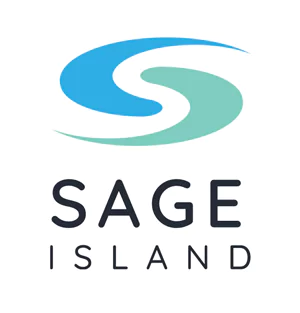Want your website to succeed in the world of SEO? It can be done, as long as you’re strategic. Too often we test search rankings using keywords and phrases we hope we’ll rank well for, and then quickly discover our website isn’t making it on to the first page of results. Or worse, it’s nonexistent. Whether your website is new to the Internet game or has been around for awhile, it’s essential to stay on top of best practices and continue making improvements. At Sage Island, we always suggest investing in a long-term SEO plan for continuous organic search success.
However, when it comes to quick and easy SEO fixes to improve your search rank, we have a solution or two to share with you.
Review Your Website URLs
Not only do search engines crawl page headers and copy within your site, they also pay attention to page URLs. Include relevant keywords and remove “stop words” such as “and,” “it,” “to,” and many others. (This “stop words” list is a great resource.) “Stop words” are low-valued and only add clutter. When URLs are short and made up of keywords relevant to their page topic, search engines can easily comprehend what the content is about and will recognize it as a higher-quality site.
Optimize Page Meta Data
No matter how much SEO strategies change, but one rule remains the same: meta data (title tags and meta tags) are the most important and influential pieces of the search engine optimization pie. We’ve broken down what meta data is and the importance of customizing it for your website in a previous article, but here’s a recap. Title tags are the titles of pages, while meta tags describe what pages are about. Search engines look at title tags and grade their quality based on the relevance to a page’s topic. Title tags should always include keywords, and sorry, keyword stuffing is not coming back so don’t do it. Keep your titles to no more than 60 characters long and try to inject the same keywords in your meta descriptions whenever possible. Search engines do not base rank off meta tags, but what’s written can impact a user’s decision to click on your page.
Use Clear Headings
Every page on your website should have a main heading (also known as a H1) before content begins. Headings act as a navigation for search engines, announcing what’s to come in the next section. And when you include a specific keyword in the heading, search robots understand all content under that heading will address the same topic as the keyword. You can further break down your headers into sub headers (H2, H3s, H4s) depending on how you want to structure your information.
Include Alt Text for Images
Sadly, alt text is probably the most overlooked SEO tactic to improve rank. Alt tags are defined as text that identify each image on the page. They’re used mainly by screen readers, which are browsers for the blind and visually impaired. We cannot say this enough: Every image must have alt text. Not only is it beneficial for SEO rank, but it’s the only way visually impaired people can understand the purpose of the image. Similar to meta data, keep alt tags short but descriptive with relevant keywords.
Use External Links to Websites with Importance
More than likely you’ll have content that links to other websites. When this happens, pay attention to that site’s domain authority. Are you linking to a resource that is ranked highly? The more you connect your content to credible sources, the better you build your own domain’s authority and value.
Write for Humans, then Robots
Writing primarily for search robots is a thing of the past, and good thing too because it was a keyword stuffed, spammy mess. Search engines have come a long way since then, and have gotten sophisticated enough to differentiate quality versus spam-worthy content. Your content should answer questions that readers find value in so you can build your website’s trust and validity. Write for humans, then tweak as necessary for robots. After all, humans are your customers!
Entice Users to Share
You’ve written a great piece of content with compelling imagery that users love and want to share. Improve your SEO and user experience by enabling people to spread the word about your information. Add social share buttons to your blog or publish content on your social media channels. Search engines crawl Facebook and Twitter, which means your content has a better opportunity to be seen when you share on multiple platforms. Social media is one of the best ways to raise brand awareness – the more your company is seen and searched for on social channels, the higher value search engines award your content.
Don’t Forget to Blog
Nothing makes search engines happier than websites that continuously updates their content. If you’re blogging regularly, great job! Don’t have a blog yet? It’s time to share your industry knowledge with the rest of the digital world. The more you blog the better, but we know finding the time can be hard. Consider your schedule and try to remain consistent, whether that’s every day, every week or a couple times a month.
Using correct methods of website SEO and continuing to make changes as search engines change their algorithms plays a pivotal role on how well your website will rank as time goes on. We hope you give these quick fixes a try so you can see what a difference website optimization can make for your site’s search rank. If you need assistance with any of our tips, or want to boost your SEO for the long-run, contact Sage Island. Let’s get your brand positioned where it belongs in search results.

